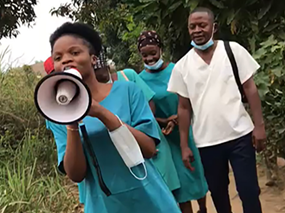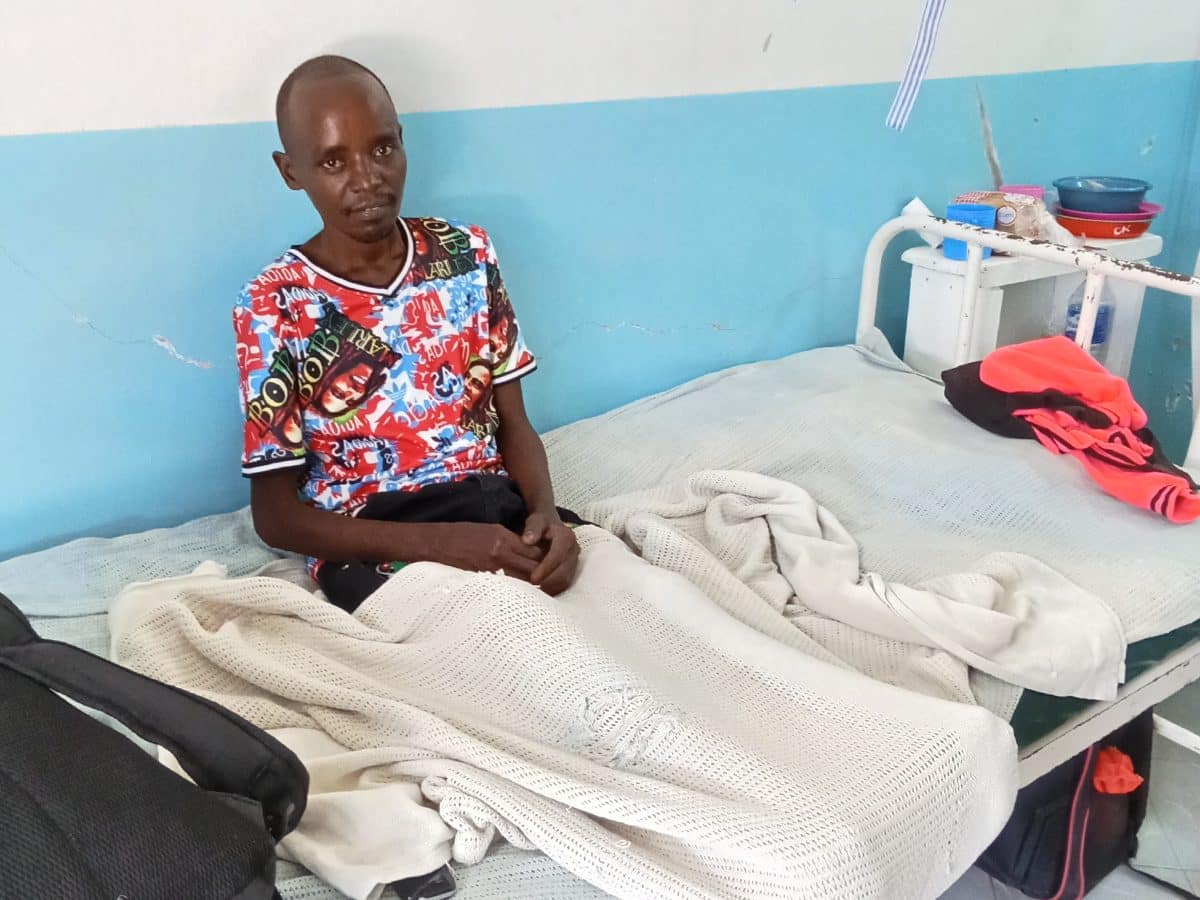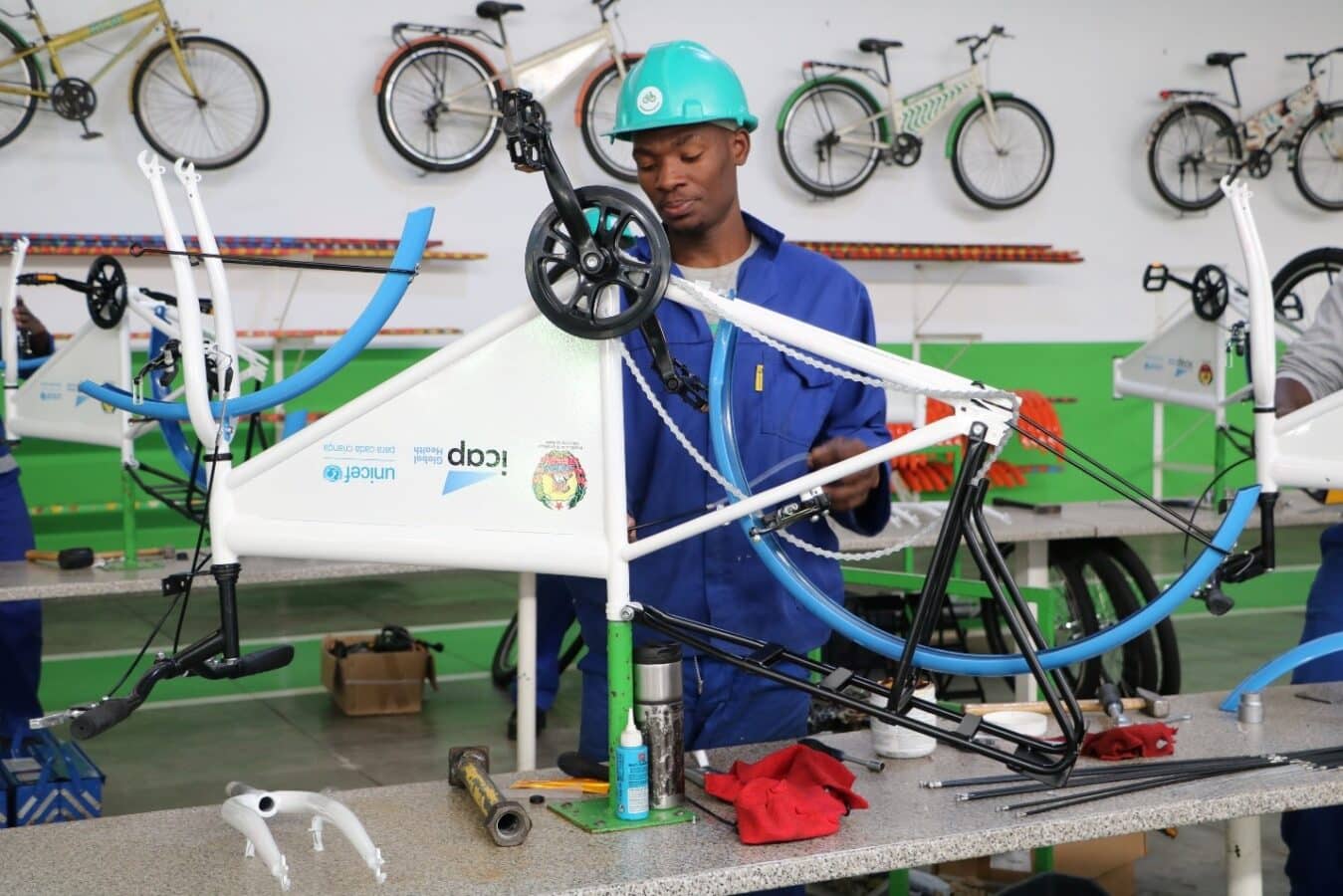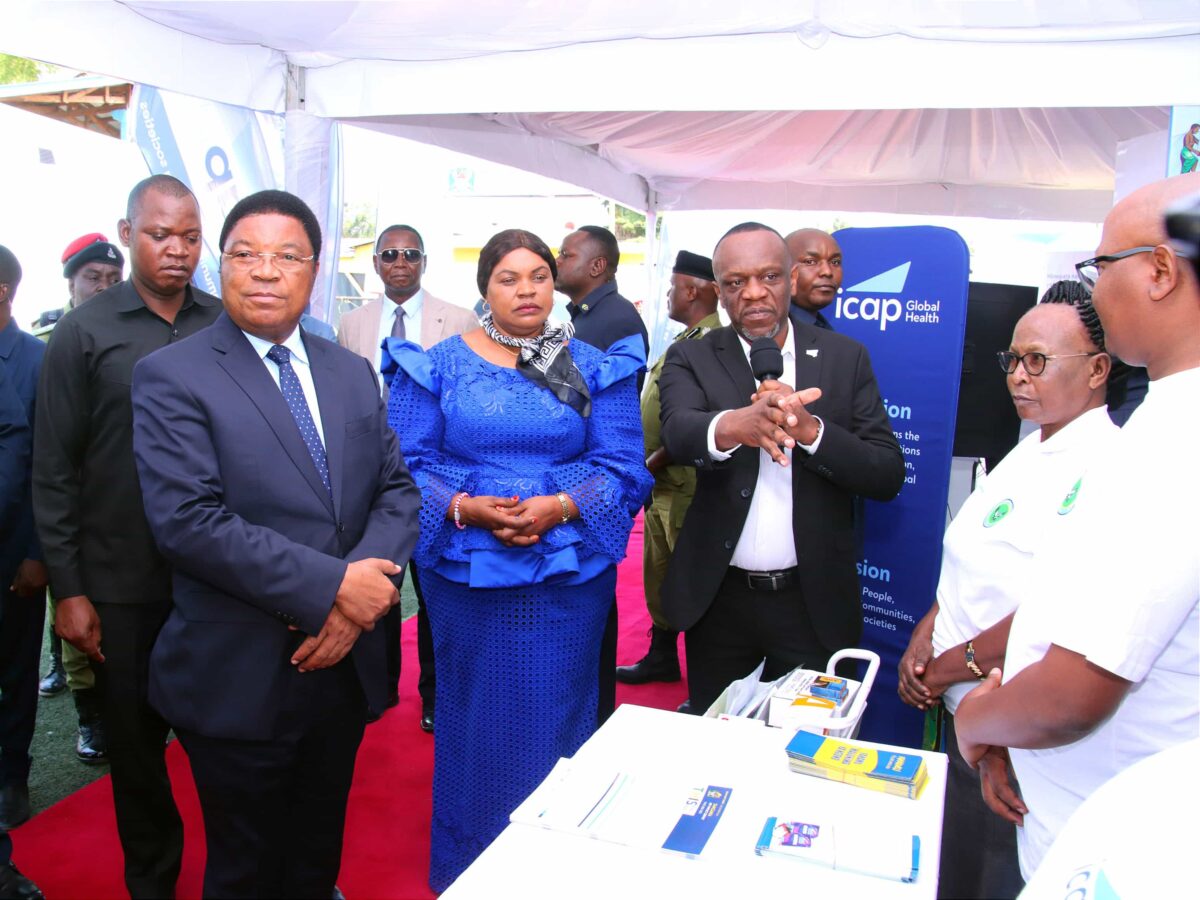The Democratic Republic of the Congo (DRC) is Africa’s second-largest country by geographic size, measuring over 2 million square kilometers. The majority of its 112 million people live in rural areas, yet most of its health workforce is concentrated in its capital, Kinshasa, or other urban centers. As a result, strengthening human resources for health in DRC’s rural areas is critical to ensuring equitable access to health care for its people.
In response, ICAP launched two programs with the aim of strengthening the health systems in some of the country’s more remote areas; both programs are a part of the multi-country Resilient and Responsive Health Systems Initiative. The initiative—with support from the Health Resources and Services Administration (HRSA) of the U.S. Department of Health and Human Services—aims to strengthen DRC’s primary health care system through the provision of health worker training in HIV prevention, HIV care and treatment, and maternal and child health.
In 2019, ICAP began working with DRC’s ministries of Health and Education, the Nursing Council, the Midwife Association, and four nursing schools to implement a one- to three-month rural rotation program for nursing and midwifery students in Haut Katanga Province, one of the country’s most populous. The program not only gave students the training and experience of working with rural populations, it also helped people living in remote areas to access quality HIV prevention, care, and treatment services, along with general health services.
“In DRC, most people live in rural areas that typically lack highly qualified health professionals. By exposing students to rural health care, they see not only the local needs of communities, but learn that they can make a difference there,” said Susan Michaels-Strasser, PhD, MPH, RN, FAAN, senior director of Human Resources for Health Development at ICAP.
ICAP, in collaboration with the government, selected 16 rural health centers in areas exhibiting a high prevalence of HIV, and where HIV treatment was being provided with support from the U.S. President’s Emergency Plan for AIDS Relief (PEPFAR). Over the course of two years, from 2019 to 2021, 628 nursing and midwifery students from four urban nursing schools completed rotations at the rural clinics, providing HIV care and treatment and a range of other primary care services and health advocacy activities.
Almost every student who participated in the rural rotation reported satisfaction with their experience, in large part because of the many hands-on opportunities to put their education into practice, something that would have been more difficult in large city health centers where there are more trained health professionals on staff. They also faced a diverse array of conditions, illnesses, and emergency situations since rural health centers act as one-stop shops for local health care.
“Despite difficult living conditions in accommodations without beds or mattresses, the rural rotation was beneficial for me,” said Gemima Munkita Vibudulu, a midwifery student who participated in the rural rotation initiative. “I learned how to manage birth deliveries in poor conditions without equipment like ultrasound machines.”
ICAP planned the practicum with nursing school staff, and trained staff at the rural health centers to be preceptors and “master trainers” for the arriving students, who typically attended their rotations in groups of 10 to 12. ICAP also ensured that students had safe and secure lodging during their rotations, and even met with the students’ parents to discuss the importance of the program and to answer their questions.
The visiting students provided valuable services to the health centers, supporting the rural clinics’ health workers in testing over 2,300 people for HIV and linking those who tested positive to care in ICAP-supported facilities.
An Innovative Learning Approach
While the DRC has made encouraging progress towards achieving UNAIDS 95-95-95 goals by 2025, higher staffing levels and an increased capacity to deliver quality HIV services are needed to close the gap. With the majority of the country’s population living in rural areas, the government and its partners realized an innovative learning approach was needed to reach health workers throughout the country, especially those stationed in remote areas.
In 2019, with financial support from HRSA, ICAP—in collaboration with the Ministry of Health and the Ministry of Education—developed and launched a weekly tele-mentoring program for health care workers in the DRC based on a University of New Mexico model called the Extension of Community Health Outcomes (or Project ECHO).
The distance learning project began by linking isolated health centers in Haut Katanga Province with the University of Lubumbashi in the province’s capital as well as to a central hospital in DRC’s capital city of Kinshasa as a way for the Ministry of Health to provide training on updated standard operating procedures and HIV testing guidelines. The live, online training sessions not only avoid the expense of requiring health workers to travel to Kinshasa, they also avoid taking providers away from their vital work for days at a time.
When COVID-19 hit in 2020, the tele-mentoring sessions were quickly adapted into weekly, much-needed updates and training on the latest state of the virus and how to prepare for and treat it. For example, early tele-mentoring topics included “Disclosure of HIV Status in Children” and “The Importance of Validating HIV/AIDS Data”; subject matter quickly pivoted, however, to topics like “Intensive Care of COVID-19 Patients” and “Autopsy of a Suspected Case of COVID-19.”
By June 2022, the number of weekly participants logging on to the sessions had grown exponentially from 234 in the first year to more than 1,900. While the program was originally developed for nurses and midwives, it quickly gained interest from doctors and community health workers, who also began joining the weekly sessions.
“It’s important because the rural health workers who participate don’t feel as isolated as they actually are,” explained Sungani Zidana-Ndovi, ICAP senior project portfolio manager. “Now they always feel like there’s an expert who they can talk to about difficult cases they have encountered, and those become topics they can talk about through the year.”
One of the most challenging parts of establishing the program was setting up the necessary Internet connection and technology to facilitate regular and dependable online Zoom sessions for the rural health centers.
The government has now fully taken over the program and it has even launched a virtual learning “super hub” in Kinshasa with additional support from ICAP and HRSA, linking even more rural and isolated health care providers to national and global best practices and training. A true community of practice has developed that allows these isolated practitioners to support one another in the continuous improvement of HIV and general health and primary care services for some of the country’s most vulnerable people.
About ICAP
A major global health organization that has been improving public health in countries around the world for nearly two decades, ICAP works to transform the health of populations through innovation, science, and global collaboration. Based at Columbia Mailman School of Public Health, ICAP has projects in more than 30 countries, working side-by-side with ministries of health and local governmental, non-governmental, academic, and community partners to confront some of the world’s greatest health challenges. Through evidence-informed programs, meaningful research, tailored technical assistance, effective training and education programs, and rigorous surveillance to measure and evaluate the impact of public health interventions, ICAP aims to realize a global vision of healthy people, empowered communities, and thriving societies. Online at www.icap.columbia.edu








